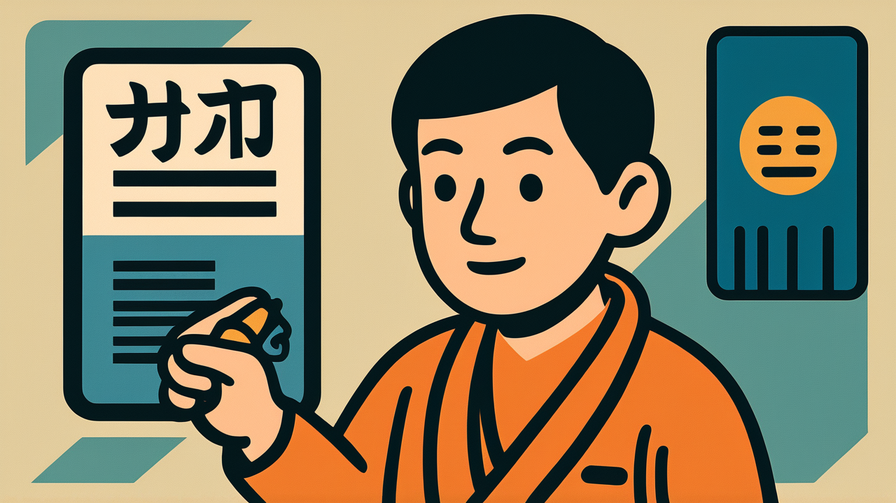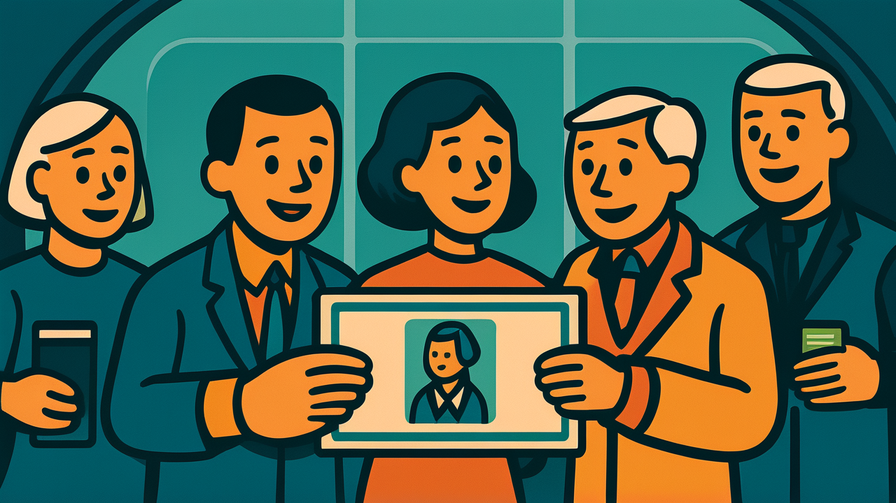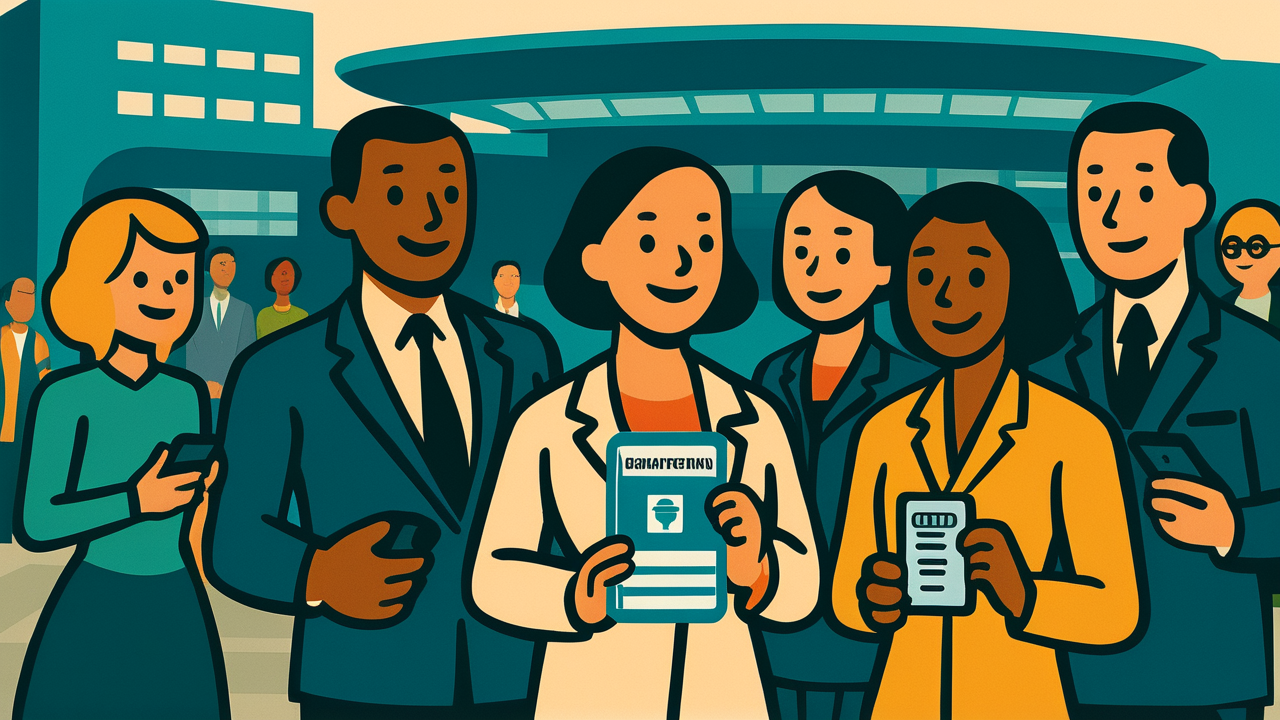[Disclaimer] This article is reconstructed based on information from external sources. Please verify the original source before referring to this content.
News Summary
The following content was published online. A translated summary is presented below. See the source for details.
Japan is working on something that could change how everyone carries their important documents – imagine having your ID, health insurance card, and driver’s license all in one place! The Digital Agency just held their first big meeting about combining the My Number Card (Japan’s national ID system) with health insurance certificates and driver’s licenses. Here’s the really cool part: they’re planning to make it work on iPhones too, so you might not even need to carry a physical card in the future. The meeting revealed that millions of people need to renew their cards this year – the electronic certificates expire every 5 years and the cards themselves every 10 years. But there’s a problem: lots of people still don’t understand what the My Number Card actually does. Many think it stores their tax info or medical records (it doesn’t – it’s just a key to access those systems). The government wants to fix these misunderstandings and make the card something people actually want to use every day. They’re even planning to put up posters at driver’s license centers to spread the word!
Source: digital-gov
Our Commentary
Background and Context

Let’s break down what’s happening here. The My Number Card is Japan’s version of a national ID card – kind of like a Social Security card in the US but way more advanced. It has a chip inside that lets you prove who you are online, file taxes, and access government services without going to an office. Right now, Japanese people carry separate cards for everything – health insurance, driver’s license, residence card, etc. It’s like having a wallet stuffed with cards that could all be replaced by one. The problem is that many Japanese people got these cards during COVID when the government was giving out money to cardholders, but then stuck them in a drawer and forgot about them. Now those cards are expiring, and the government is freaking out because they spent billions on this system.
Expert Analysis
Digital transformation experts see this as Japan trying to catch up with countries like Estonia and South Korea, where digital IDs are already part of daily life. The integration with iPhone is huge because Japan is iPhone country – about 70% of smartphones there are iPhones. This could be the thing that finally makes digital IDs mainstream. However, privacy advocates worry about putting so much personal information in one system. What happens if it gets hacked? The government says the card doesn’t store your actual data – it’s more like a digital key that unlocks access to different databases. But explaining that to millions of people who still prefer cash and paper forms is the real challenge.
Additional Data and Fact Reinforcement
Here’s what’s at stake: About 75% of tax returns in Japan are now filed online using the My Number Card, up from just 20% five years ago. The card has been issued to over 100 million people (about 80% of Japan’s population), but daily usage remains low. The renewal wave is massive – about 10 million electronic certificates need renewal this year, and 5 million cards will hit their 10-year expiration. Each renewal requires a trip to a government office, which is why they’re pushing hard for the iPhone integration. The government has already spent over ¥1 trillion (about $7 billion) on the My Number system. If people don’t renew, that investment could be wasted.
Related News
This push comes as Japan struggles with its aging society and labor shortage. Government offices are understaffed, and making people come in person for every little thing isn’t sustainable. Other countries are watching closely – Singapore has its SingPass, India has Aadhaar, and even the EU is working on a digital identity wallet. The timing with iPhone integration is interesting because Apple just opened up their NFC chip to third parties in Japan, allowing for these kinds of government applications. Meanwhile, convenience stores in Japan are already using My Number Cards for various services, from printing official documents to serving as age verification for alcohol purchases.
Summary

Japan’s plan to combine the My Number Card with health insurance and driver’s licenses represents a massive shift toward digital government. While the technology is impressive, the real challenge is changing hearts and minds – convincing people that one digital card can safely replace a wallet full of plastic ones. For young people who are comfortable with digital everything, this might seem obvious. For their grandparents, it’s a revolution.
Public Reaction
Japanese Twitter (X) is split between tech enthusiasts excited about iPhone integration and skeptics worried about putting “all their eggs in one basket.” Young people are mostly positive, joking about finally having lighter wallets. Some are already planning to go fully digital with just their phone. Older generations express concerns about what happens if their phone dies or gets stolen. Privacy advocates are organizing campaigns about the risks of centralized ID systems. Government workers are stressed about handling the renewal rush. Some people share stories of trying to explain the My Number Card to their grandparents and failing miserably. Convenience store workers say they’re tired of teaching customers how to use the card readers.
Frequently Asked Questions
Q: Is this like having all your info stored on one card?
A: Not exactly! The card (or iPhone app) is more like a master key. Your actual data stays in separate government databases – the card just proves you’re allowed to access them. Think of it like having one password that works for all your school accounts instead of memorizing different ones.
Q: What happens if I lose my phone with my digital ID on it?
A: That’s why they’re building in serious security features. You’ll need Face ID or Touch ID to access it, and you can remotely disable it if your phone is stolen. It’s actually safer than losing physical cards which anyone could use.
Q: Will this become mandatory?
A: The government says you can still use traditional cards if you want, but they’re making it really convenient to switch to digital. It’s like how you can still use cash, but everyone prefers digital payments now. Eventually, peer pressure and convenience will probably make everyone switch.


